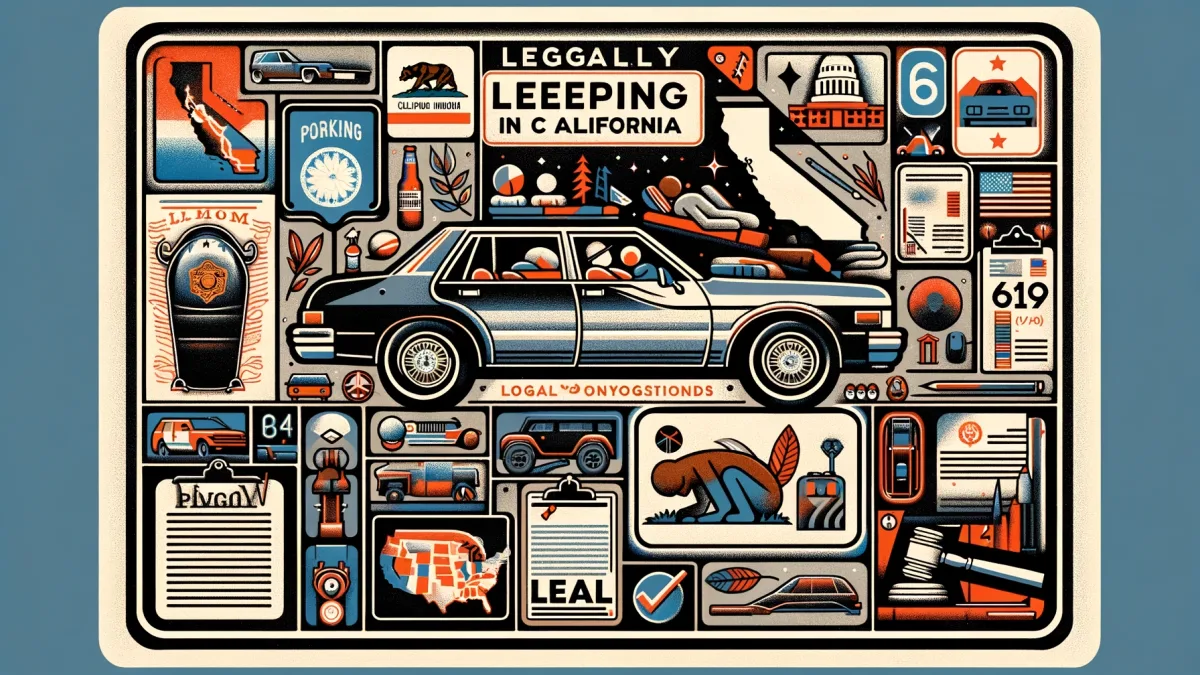Hey there, road trippers, urban adventurers, and everyone who’s ever found themselves pondering whether it’s okay to recline the driver’s seat and call it a night in the Golden State. Today, we’re tackling a question that seems straightforward but dives into the complexities of local ordinances, state laws, and the nuances in between: Is it illegal to sleep in your car in California? Let’s buckle up and drive through the facts.
Sleeping in your car isn’t a black-and-white issue in California—or anywhere, for that matter. While the state doesn’t have a blanket law that outright bans sleeping in your vehicle, various cities and municipalities within California have set their own rules that can turn a peaceful nap into a legal headache.
The Landscape of Local Ordinances
In cities like Los Angeles, San Francisco, and San Diego, local regulations can significantly impact where and when you can sleep in your car. These ordinances often aim to address concerns related to homelessness, public safety, and the preservation of community aesthetics. As a result, finding a legal spot for a night’s rest in your vehicle can feel like navigating a regulatory maze.
Where You Park is Paramount
The legality of sleeping in your car in California heavily depends on your chosen parking spot. Here’s a breakdown:
- Residential Areas: Many cities have restrictions or prohibitions on vehicle habitation in residential neighborhoods, especially overnight.
- Public Lands and Parks: State and national parks have specific rules about overnight stays, with designated camping areas for those looking to spend the night.
- Private Property: Parking lots and commercial properties often have no-loitering policies, and sleeping in your car could be considered trespassing without explicit permission from the owner.
- Rest Stops: California allows overnight parking and sleeping in your car at most state-operated rest stops, but there’s usually a 8-hour limit to keep in mind.
The Fine Print: Health and Safety Concerns
Health and safety codes also play a role in regulating sleeping in cars. For instance, California’s Vehicle Code Section 22651(k) allows for the removal of vehicles that are deemed a public health risk or obstructing traffic. Additionally, the state’s health and safety codes can be interpreted to address situations where sleeping in a vehicle may pose public health concerns.
Navigating the Legalities
If you find yourself needing to sleep in your car in California, consider these tips to stay on the right side of the law:
- Research Local Ordinances: Before settling in for the night, check the specific regulations of the city or county you’re in.
- Opt for Designated Areas: Look for rest stops, campgrounds, or other areas explicitly designated for overnight parking and sleeping.
- Be Discreet: If you must sleep in a less-than-ideal location, be as discreet as possible to avoid drawing attention.
- Stay Informed: Laws and ordinances can change, so it’s important to stay informed about the latest regulations in your area.
The Bigger Picture: Homelessness and Housing Insecurity
It’s impossible to discuss the legality of sleeping in cars without acknowledging the broader issues of homelessness and housing insecurity. For many, vehicle habitation isn’t a choice but a necessity. The legal landscape surrounding this issue reflects a tension between individual rights and community concerns, highlighting the need for compassionate and comprehensive solutions to housing insecurity.
Final Thoughts: A Restful Night Within the Law
Sleeping in your car in California can be legal, but it’s wrapped in layers of local ordinances and specific conditions. Whether you’re a traveler seeking adventure or someone facing hard times, understanding the legal framework can help you navigate these challenges more effectively. And remember, while laws provide the framework, empathy and understanding can guide us toward solutions that respect both individual needs and community well-being.









Leave a Reply